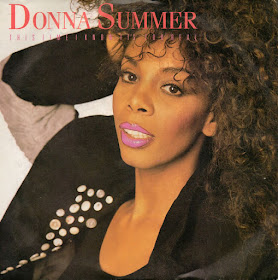From dictionary.com:
prerogative [pri-rog-uh-tiv, puh-rog-]"His what-ative?" No matter what any hot-shot Grammy-winning record producer might say while sitting behind a recording console in a VH1 documentary, let me tell you a surefire way to churn out a smash R&B hit: use a ten-dollar word that nobody else has ever dared to shoehorn into a pop lyric. Although the track's merits are many, I feel - when all is said and done - that this is the alpha and the omega of the majesty that is Bobby Brown's "My Prerogative." Janet Jackson and her little "Escapade" can go kiss Bobby's big fat linguistically-gifted ass.
noun
an exclusive right, privilege, etc., exercised by virtue of rank, office, or the like:
the prerogatives of a senator.
a right, privilege, etc., limited to a specific person or to persons of a particular category:
It was the teacher's prerogative to stop the discussion.
a power, immunity, or the like restricted to a sovereign government or its representative:
The royal prerogative exempts the king from taxation.
As a discerning nine-year-old music listener, I knew a winner when I heard one. It was pretty simple. Guess how many other pop songs in 1989 featured the word "prerogative." Yeah, that's right, that would be ZERO. What in God's name was a "prerogative"? Was that like some kind of marsupial? An advanced branch of mathematics? But see, herein lies the genius of "My Prerogative": after one listen, anyone who didn't know beforehand what "prerogative" meant would have learned exactly what "prerogative" meant. What it means, in layman's terms, is that Bobby Brown can "dew what he wantsta dewww."
Given Mr. Brown's subsequent altercations with the law, I feel like "My Prerogative" has taken on a more sinister and disturbing air than it would have carried back in 1989. I pulled up Brown's Wikipedia page, looking for a quick refresher on the man's less than savory deeds, and I was confronted with a neatly bullet-pointed list than appears to be longer than the Lake Pontchartrain Causeway. What I'm saying is this: In 1989, I think Bobby was well within his rights to claim that things like "leaving New Edition," "sleeping around," "keeping the money he'd earned," and "making the kind of records he wanted to make" were certainly his prerogative. However, I'm not sure if it was truly Bobby's prerogative to:
- Beat a nightclub patron in Orlando
- Kick a hotel security guard
- Crash into a condominium sign while driving drunk
- Strike his spouse (a certain Whitney Houston) and threaten to "beat her ass"
- Miss three months of child-support payments
With its minor key sax and/or synth riff, "My Prerogative" sounds like a hard-hitting new jack swing update of the Inspector Gadget theme - and let it be noted that co-producer Teddy Riley also co-produced Doug E. Fresh's "The Show," which explicitly interpolated said theme. Other R&B artists were inspired by James Brown, Marvin Gaye, Al Green; Teddy Riley heard the Inspector Gadget theme and knew where his destiny resided. At least "My Prerogative" is mercifully light on the quasi-rapping that, in my opinion, has not worn too well on other Brown hits of the era such as "Don't Be Cruel" and "On Our Own" (AKA "That Bobby Brown song from Ghostbusters II that I thought was unbelievably awesome at the time but, you know, I was nine years old"). No, "My Prerogative" has something even better: Bobby's gloriously bratty rant about how he "can't have money in my pocket and people not talk about me ... got this person over here talkin' 'bout me, this person ... I made this money, you didn't - right Ted?" Like many a legendary rapper to follow, I fear that Bobby greatly overestimated how much other people cared about all the hassles that resulted from his massive success. "What is this, a blizzard?" No, more like a persecution complex.
The video treats us to a sampling of the Bobby Brown concert experience, where he's flanked by a female sax player and a female keytar player, both sporting halter tops and hot pants, and both probably having signed contracts to keep any complaints to arbitration only. At 2:58 Bobby thrusts his body against Ms. Keytar and attempts to play a few notes, until she ducks and he swings his leg over her head to coincide with the line "Yo Teddy! Kick it like this!" I'm thinking that, ten years later, Bobby wouldn't have even tried to miss her.

